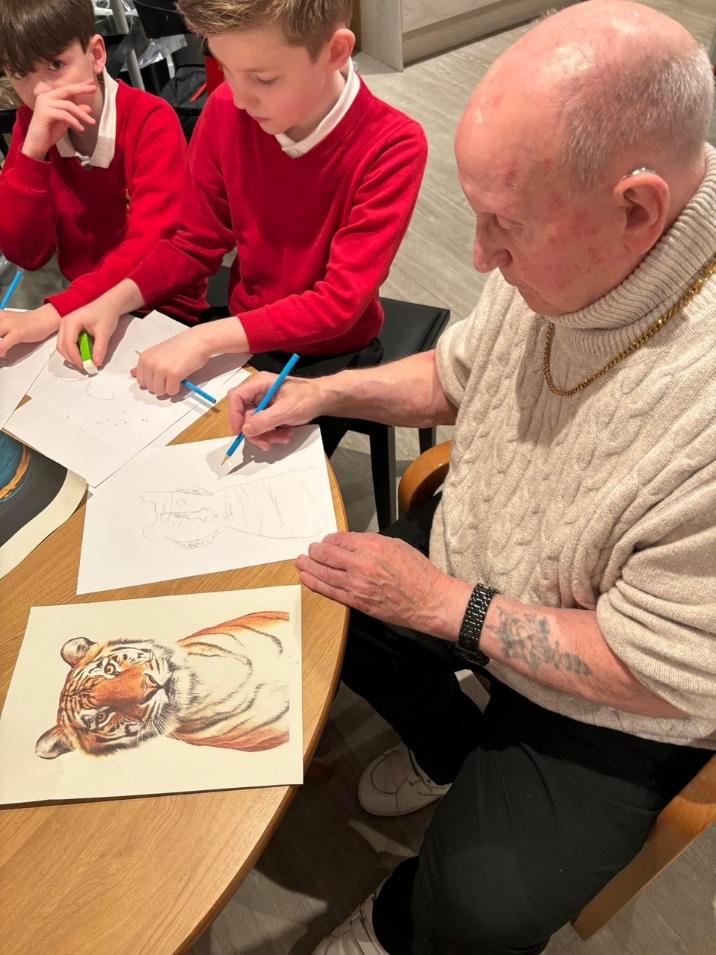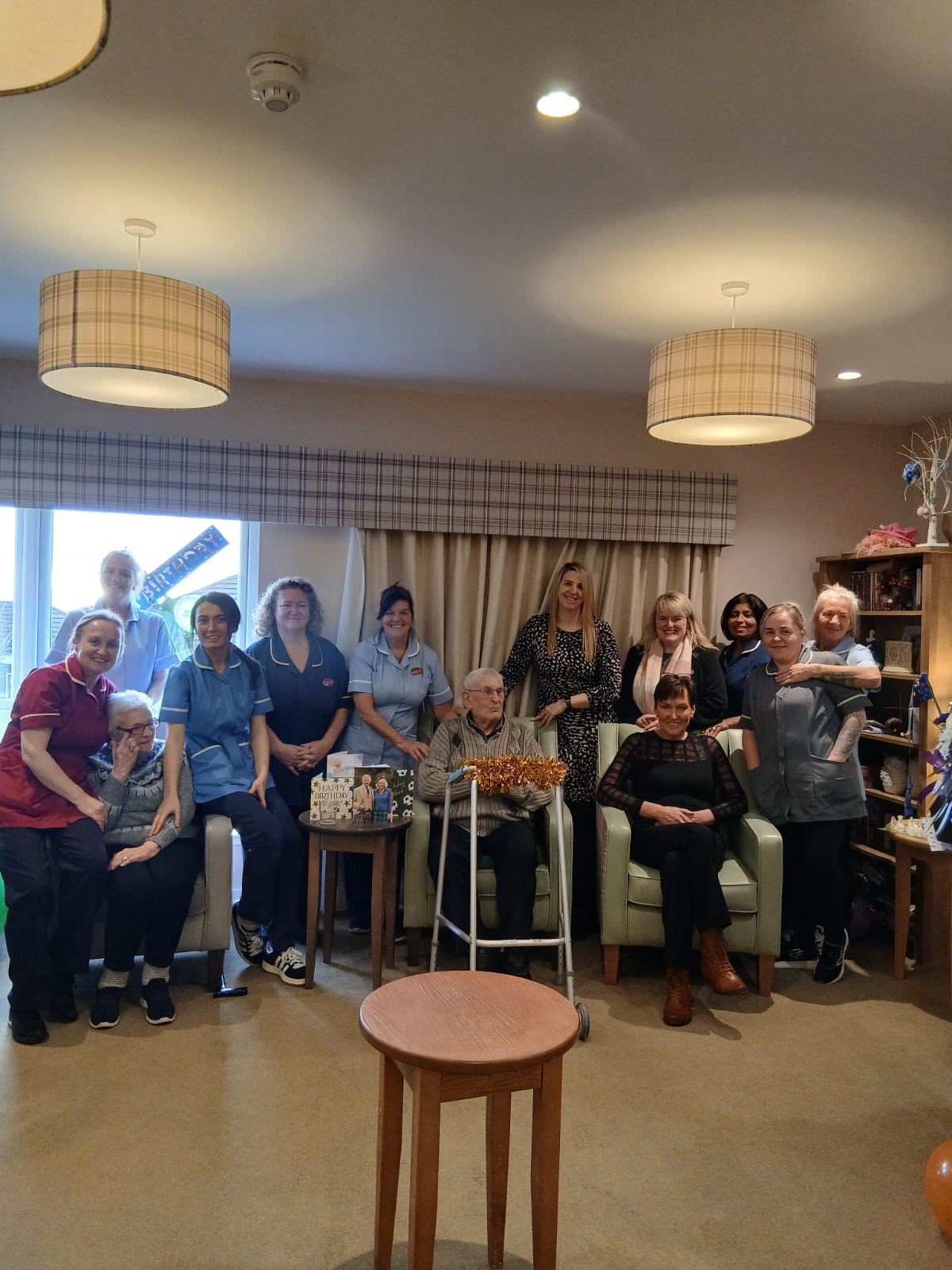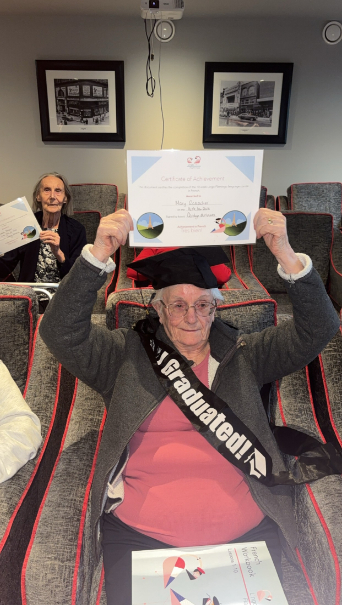What is Person-Centred Care in a Care Home?

When choosing a care home for a loved one, many people come across the term person-centred care. But what does it actually mean, and why is it so important for residents’ wellbeing and quality of life? Person-centred care is an approach that focuses on the individual as a whole, ensuring their care, support, and daily experiences are tailored to their personal needs, preferences, and interests. It is about more than just providing medical or practical assistance. It is about respecting residents as unique individuals and promoting a life of dignity, choice, and fulfilment.
Understanding Person-Centred Care
Person-centred care is built on the principle that every resident has their own values, preferences, abilities, and life experiences. Rather than a one-size-fits-all approach, care is adapted to suit each individual. This can include personal routines, dietary preferences, hobbies, cultural or religious practices, and communication styles. The goal is to create a supportive environment where residents feel valued, empowered, and involved in decisions about their own care.
In practice, person-centred care requires a strong relationship between staff and residents. Care teams take time to understand each individual’s history, preferences, and needs, and use this information to shape daily routines, healthcare support, and activities. It also involves ongoing communication with family members and friends, ensuring care decisions reflect the resident’s wishes and lifestyle.



How Person-Centred Care Works in a Care Home
In a care home setting, person-centred care affects all aspects of a resident’s life. It starts with comprehensive assessments of needs and preferences. These assessments form the foundation of a care plan, which outlines how staff will support the resident in areas such as personal care, health management, and social engagement. The plan is regularly reviewed and updated as needs change.
Person-centred care also means allowing residents to maintain as much independence as possible. Staff are trained to provide assistance when needed, while encouraging residents to make their own choices and remain in control of their daily life. This can include decisions about meal options, activity participation, bedtime routines, or even how they spend their free time in communal areas or private rooms.
Promoting Physical, Mental, and Emotional Wellbeing
A key part of person-centred care is supporting all aspects of a resident’s wellbeing. This includes physical health through personalised nursing or residential support, such as help with mobility, medication management, or medical monitoring. Mental health is equally important, and staff often provide activities and interactions that stimulate cognition, reduce stress, and foster a sense of purpose.
For residents living with conditions such as dementia, person-centred care can be particularly beneficial. Tailored activities, routines, and environments help reduce confusion, improve engagement, and maintain a sense of identity. Staff are trained to recognise triggers for anxiety or distress and respond in ways that respect the individual’s preferences and comfort levels.
Emotional wellbeing is enhanced when residents feel heard, valued, and involved. Person-centred care encourages positive social interactions, meaningful relationships, and a sense of community within the care home. By involving residents in decisions about their care and daily life, they experience greater confidence, dignity, and quality of life.
Activities and Lifestyle Tailored to the Individual
One of the most visible aspects of person-centred care in a care home is the activities programme. A well-planned programme goes beyond entertainment to offer meaningful engagement that suits individual abilities and interests. This may include creative activities such as arts and crafts, music, or gardening. Physical activities like gentle exercise classes or walking groups help maintain mobility and health. Cognitive stimulation may be provided through quizzes, reading groups, or memory exercises. Social activities foster friendships and community, while outings and day trips allow residents to stay connected with the wider world.
The key to person-centred activities is flexibility and personalisation. Residents are encouraged to take part in what they enjoy, and new experiences are introduced gradually, with consideration for comfort and ability. Staff observe responses to activities and adapt them to ensure all residents feel included and engaged.


Collaboration with Family and Healthcare Professionals
Person-centred care also relies on strong collaboration between staff, families, and external healthcare professionals. Families often provide valuable insight into a resident’s history, preferences, and personality, helping the care team make informed decisions. Regular communication keeps families involved in care planning and allows them to observe and contribute to their loved one’s progress.
Care homes work closely with healthcare providers such as doctors, nurses, therapists, and specialists to deliver a holistic approach. This ensures residents receive the right support for any medical or emotional conditions while maintaining their independence and lifestyle preferences. A person-centred approach recognises that care is not only about treating conditions but also about supporting overall wellbeing.
Technology in Person-Centred Care
Digital tools are increasingly used to support person-centred care. Electronic care planning systems allow staff to record observations, track progress, and tailor interventions in real time. These tools improve communication between staff, provide clear documentation, and ensure each resident’s needs are addressed consistently and effectively. Technology also enables families to stay informed about daily care and involvement in activities, strengthening the partnership between care home and family.
The Benefits of Person-Centred Care
Person-centred care has wide-reaching benefits for both residents and their families. Residents experience a better quality of life, greater independence, and more confidence. They feel listened to and respected, which reduces stress and anxiety. Families gain reassurance knowing their loved one is receiving personalised support, while care teams benefit from improved communication and understanding of each resident’s needs.
In addition, person-centred care fosters a positive environment within the care home. Residents are more engaged, happier, and involved in their community. Staff enjoy stronger relationships with residents and families, making it easier to provide compassionate, effective care.
Person-Centred Care at Kingsacre Care Home
At Kingsacre Care Home in Duntocher, person-centred care is at the heart of everything we do. Using Nourish digital care plans, our team ensures that every aspect of care is tailored to the individual, from personal routines and healthcare support to activities and social engagement. We work closely with families to understand the resident’s preferences and deliver a supportive, homely environment where every resident feels valued. If you are considering a care home for a loved one, contact us today to see how our person-centred approach makes a real difference.





